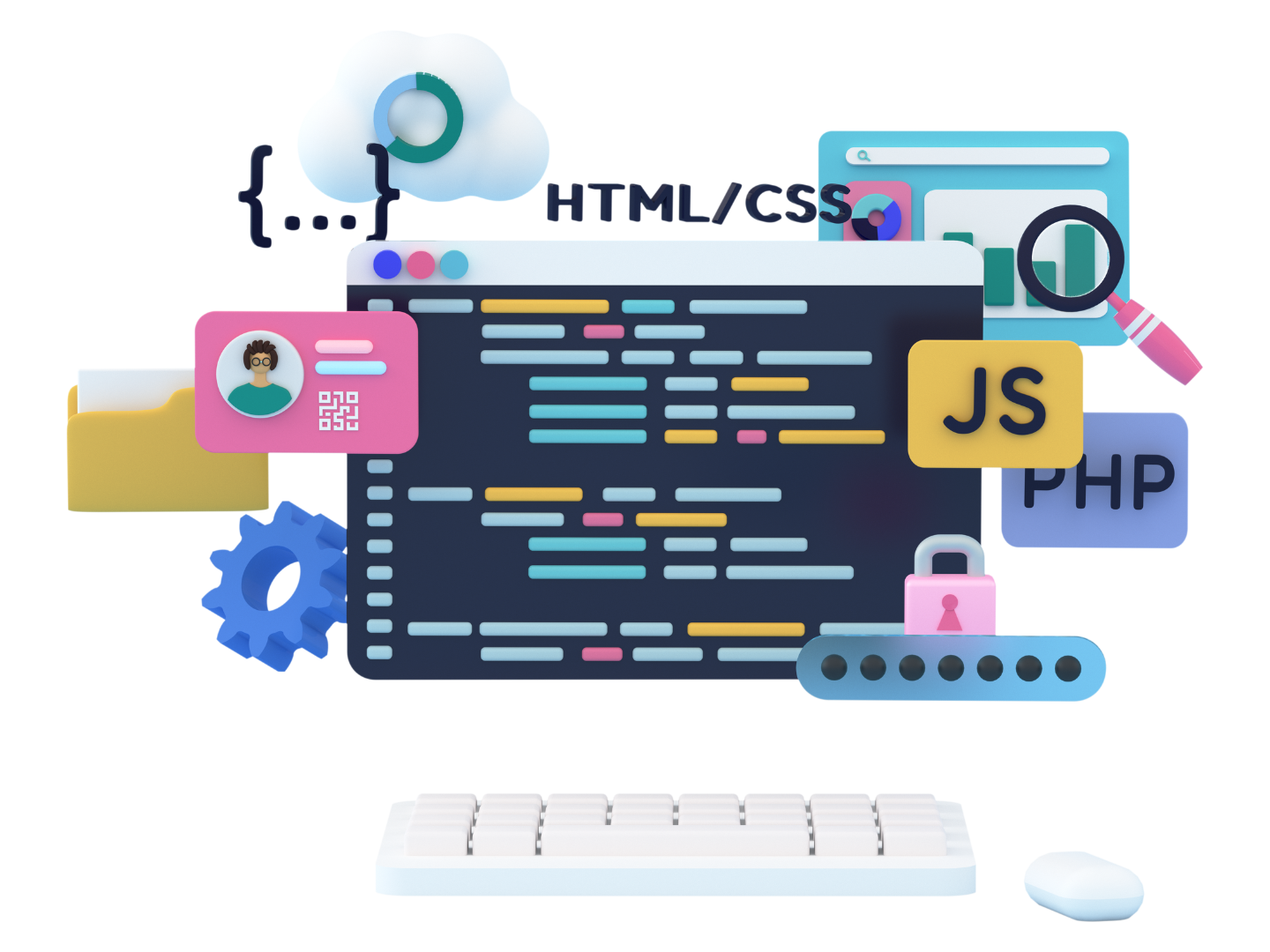Have you ever found yourself in the middle of deciding between Node.js and PHP for your web development project? You’re definitely not alone in facing this challenge. Many web developers find it overwhelming to choose between the two backend technologies, as both have their respective pros and cons.
Node.js and PHP are eternal contenders, and the competition is intensifying as each technology evolves with new strengths. Briefly discussing usability, compatibility, performance, workflows, scalability, and security – we have crafted this blog for you to read, analyze and make an informed decision about picking the right framework for your project.
Are you ready to begin the journey of exploring Node.js and PHP? Let’s start!
Understanding Node.js & Its Role
Node.js is a powerful and adaptable JavaScript backend technology. It enables developers to create robust, scalable and excellent web applications. Because of the slick architecture and sturdy nature of this technology, developers are constantly looking for solutions to scale up Node.js servers for better and more optimized web app performance.
Earlier, the JavaScript programming language took care of everything within the browser. Then, a new entrant came into the picture, divided developers’s mindshare and implemented JavaScript on the server. You’re right! That’s Node.js.
Since its introduction, Node.js has become an excellent option for handling server-side and backend programming needs. With the integration of Google’s V8 JS engine, its asynchronous nature is the highlight of its benefits. In addition to that, Node.js is famous for its non-blocking, event-driven model that helps to support real-time applications and data-intensive projects.

Key Advantages of Node.js
Here’s a closer look at the key benefits of Node.js in modern web development:
1. Single Programming Language
In Node.js, JavaScript is used by developers for both client-side and server-side scripting. Code reuse is made possible by this unification, which streamlines development processes and lowers the risk of bugs. Not to mention, project timelines can be achieved faster due to this feature.
2. Asynchronous & Event-Driven
Node.js has event-driven architecture that allows developers to handle server-side requests with any delays in processing. Thus, it facilitates efficient performance, high concurrency and scalability.
Because of its non-blocking architecture, Node.js can handle many requests efficiently without sacrificing server speed, which makes it an excellent choice for handling high traffic and developing real-time online apps.
3. Real-Time App Development Experience
The previous advantage leads us to this one. The asynchronous and event-driven architecture allows developers to bidirectionally communicate between servers and clients. In fact, it facilitates the building of real-time chat applications, gaming apps, collaborative tools and live streaming apps.
4 .Improved Scalability
Improved scalability is another important selling point for Node.js. Non-blocking I/O model enables it to handle multiple requests at a time. Thus, Node.js can deal with large number of users without worrying about
5. Easy to Learn
Having JavaScript at its back, Node.js offers a huge community support to manage updates and improve discrepancies. For this reason, this backend technology is easy to learn and adapt by seasoned programmers as well as noobs.
Disadvantages of Node.js
Although Node.js is an excellent backend technology for running JavaScript server-side, it has a few downsides.
1. Single-Threaded Model
Node.js is unable to fully utilize multi-core processors for parallel processing due to its single-threaded architecture. In simple words, it means that a single task can be processed at a time. This leads to
2. CPU-bound activities
Because they might stop the event loop and impair overall performance, Node.js is not recommended for CPU-intensive tasks such as sophisticated algorithms or large computations.
3. Unstable APIs
Node.js is renowned for often upgrading its API version. Version differences may cause compatibility problems and necessitate code modifications.
4. Lack of GUI support
Node.js does not come with built-in support for creating graphical user interfaces (GUIs), as it is primarily intended for server-side applications.
5. Callback Hell
Developers refer to this situation as “callback hell” because highly nested callbacks resulting from asynchronous programming in Node.js can make the code more difficult to comprehend and maintain.
Understanding PHP & Its Role
Just like Node.js, PHP was introduced as a front-end language. However, it has evolved as a server-side programming language over time and has proved itself as a simple, extensive and open-source scripting language.
Despite being synchronous, PHP is the backbone of millions of E-commerce websites, dynamic web pages, and content management systems (CMS) – making it an ideal choice for building simple to advanced sites and apps.
Key Advantages of PHP
Following are some of the major strengths of PHP.
1. Feature-Rich Websites
With its extensive built-in features, plugins and libraries, PHP offers fully-functional websites. Many of the world’s most widely used platforms and sites are built with PHP. Some of the popular names include WordPress, Facebook, and Magento.
2. Cost-Effective
PHP development is really cost-effective as compared to Node.js. This is because PHP is an open-source technology that allows developers to use pre-built tools and frameworks. Therefore, you don’t have to pay any license fee.
3. Built-In Database Support
PHP provides a wide range of built-in databases to choose from. It is compatible with other database management systems to facilitate developers with databases of their choices.
4. Smooth Web Integration
PHP is usually associated with seamless web integration. It is intended to be integrated as a module or via FastCGI into web servers such as Apache and Nginx. As a result, integrating HTML and other web technologies is made simple in PHP development.
5. Easy to Learn & Adapt
With easy-to-use syntax, PHP language has a simple learning curve which is easily adaptable by professional and inexperienced developers alike.
Disadvantages of PHP
While PHP serves as cornerstone for many platforms and websites, it has its fair share of disadvantages:
1. Not Appropriate for Extensive Application
One of the major cons of PHP is its inability to manage large applications. This is due to its lack of scalability and the challenge of maintaining a big codebase. Therefore, if you anticipate that your application may expand over time, you might want to think about utilizing a different language, such as Node.js.
2. Not An Ideal Option for Heavy Traffic Websites
The fact that PHP is not the ideal option for websites with a lot of traffic is another drawback. This is due to its low efficiency and inability to manage a high volume of requests. Therefore, if you anticipate a high volume of visitors to your website, you might want to think about incorporating an alternative such as Node.js.
3. Inefficient Testing Process
Testing plays an important role in the performance of a language. The PHP testing process is not very efficient, making it sluggish to perform well compared to its competitors. Its interpreted nature and lack of debugging tools make it difficult to dig bugs and issues in the code.

Battle of Node.js vs.PHP: Which One is the Right Choice?
Both Node.js and PHP serve a myriad of advantages and disadvantages. PHP, in general, is ideal for simple, yet diverse websites. Its synchronous nature hinders its performance in some scenarios, especially dealing with large numbers of simultaneous requests.
On the flip side, Node.js caters to event-driven applications and scalable cases. It is well-suited for real-time applications and large businesses.
Let us walk you through different parameters to analyze Node.js and PHP comparison and find the winner of the battle.
1. Speed & Performance Implications
PHP’s synchronous nature handles every module in a code-specific order. Thus, it takes time for the I/O process to be complete, which results in delays and reduced or no concurrency.
Node.js owes this benefit to its asynchronous nature and event-driven architecture. This significantly enhances performance and speed in resource-intensive and real-time applications.
Our Verdict: Usually, the selection of technologies comes down to your own choice and project goals. If you’re developing a high-performance app with low-latency, Node.js should be your preferred choice. However, if there is a simple app at hand, PHP will serve the purpose.
2. Ecosystem
WordPress has contributed greatly to the PHP community. A large portion of all websites on the internet are operated by the firm directly. This only demonstrates the PHP’s strength. In addition, the PHP community provides a wealth of online training resources and tutorials for beginners in addition to supporting technologies.
Our Verdict: Notably, the PHP ecosystem is more through than that of Node.js. Numerous Node.js frameworks, modules, and projects are available.In addition, the PHP community provides a wealth of online training resources and tutorials for beginners in addition to supporting technologies.
3. Databases
Databases are a crucial parameter to compare both technologies. PHP is specifically used for website development. It supports relational databases such as MYSQL and PostgreSQL and conventional databases like ODBC.
Node.js, on the other hand, supports relational databases and NoSQL databases like MangoDB.
It is important to consider your project’s unique requirements when comparing database support features and integration of both the languages. Node.js provides support for NoSQL and graph databases, thus you can easily pull off modern web apps with more scalability and flexibility.
However, PHP works well with relational databases, which is why typical web applications that use SQL databases for data storage and retrieval frequently use PHP.
Our Verdict: If your project will require expansion and scalability in features, then you should choose Node.js that embraces a diverse range of scalable web applications.
Final Thoughts
Arguing about the right choice between Node.js and PHP, we cannot conclude what you should choose as your backend technology partner. It all comes down to your project requirements and your development team’s capabilities and expertise.
PHP is ideal for CMS, e-commerce sites and simple web applications. Whereas, Node.js works perfect in high-concurrency scenarios and heavy traffic websites.
In a nutshell, the choice between PHP and Node depends on your own preference and the nature of the project you’re working on. Additionally, to effectively use technology in web app development, you may engage PHP developers or NodeJS developers from the top software development firm, such as Stackup Solutions.
Our team is professionally armed with the right knowledge and skills to embark on the next web development project with you. Either you choose Node.js or PHP, we’re here to guide you at each step to make the right choice.
FAQs
1. When to choose Node.js for your project?
node.js excels in projects with high efficiency, fast speeds, real-time data functionalities and high concurrency. It is event-driven and single-threaded, which makes it ideal for data-intensive applications.
2. When to choose PHP for your project?
PHP can be employed for server-side web development, dynamic content requirements such as E-commerce solutions, content management systems and conventional websites.
3. Which is best, Node.js or PHP?
Both technologies have their own set of strengths and weaknesses. It all hinges on what you’re looking for in a backend framework or what your project requires for. While PHP is an old language, serving millions of developers and users alike; Node.js has gained huge popularity for certain use cases.
4. Which is faster, Node.js or PHP?
Because of its non-blocking I/O approach, Node.js often performs I/O-bound activities and real-time applications more quickly than PHP. However, variables like application architecture, server setup, and code optimisation can affect how well either technology performs.







